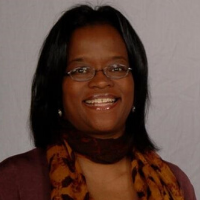
An Interview With the Center for African-American Health
Without Dismantling Systemic Racism, “Our Community Will Continue to Be at Risk When the Next Pandemic Arrives”

WFCO interviewed Deidre Johnson, the CEO and executive director of The Center for African-American Health. A community-based, family resource center dedicated to improving the health and well-being of African Americans, The Center works toward health equity through community engagement, research and advocacy and by offering culturally responsive health education and outreach that empowers community members to overcome the root causes of health problems, maximize their own individual health and access health and support services.
What are the systemic reasons that African Americans are being harder hit than many other communities with deaths from COVID-19?
Institutionalized racism is the systemic reason or root cause that African Americans (and other communities of color) are being harder hit with deaths from COVID-19.
Populations considered most at risk are those with chronic diseases such as diabetes, cardiovascular disease, asthma and high blood pressure. For generations, African Americans have disproportionately experienced these exact health disparities.
The situation is also exacerbated by poverty and the number of African Americans holding front line jobs that are considered “essential.” The ability to shelter in place or work remotely is a privilege. If you cannot do so or do not have that choice, you are by default at higher risk.
COVID-19 is merely shining a light on historic inequities. If we do nothing bold to dismantle system racism, our community will continue to be at risk when the next pandemic arrives.
What must change in order to change the unfortunate phenomenon that “when America sneezes, black folks get pneumonia?”
The number one thing will be an explicit effort to dismantle systemic racism. This is complex problem that is at the root of American culture. However, it can be tackled in a variety of ways. Ultimately, African Americans cannot dismantle a system that we did not create. It is up to allies and those in power to pause and begin to do things differently, within their circle of influence.
What mental health outcomes has the Center for African American Health seen as a result of the pandemic?
We were already living with toxic stress. This pandemic has dramatically increased that stress level. Imagine:
- You know you would be safer at home, but you cannot work remotely.
- You were doing fine, then suddenly lost your job and cannot feed your family and have no idea what to do about rent.
- You heard in the news that evictions were not supposed to be happening, but you were just evicted and are now suddenly homeless in a shelter in the middle of a pandemic.
- You are a single mother with seven children. Not only are your children out of school, but you also just lost your job.
- You understand that it is important to wear masks, but as a black man you also know this puts you in danger.
- Services and education are moving online, but you have no access to reliable technology for you or your children.
We are vulnerable in every social determinant of health. Even if you felt relatively secure before the pandemic – that sense of security has dissolved with the loss of jobs, the inability to keep your family safe and the excess death in our community.
If you were already dealing with substance abuse or behavioral health challenges, you are now at even greater risk.
Is the economic fallout of this pandemic further impacting African-American health?
Yes. Two primary drivers of the social determinants of health are access to housing and employment. We have also seen a huge surge in food insecurity, which is also related to health.
What needs to happen to ensure women and their families in Colorado’s African-American community are centered in Colorado’s recovery efforts?
We need resources and services that are deliberately targeted to help support recovery in the African American community. The old adage that “a rising tide lifts all boats” would be viable if we lived in an equitable society. For generations African American families, communities and organizations have been kept resource poor through systemic inequities. We also know that the best way to change the trajectory of a family is to invest in and support women.
Also, while the safety net is important, too often families find themselves trapped – safety nets are merely “strangle” nets – with few true pathways to opportunity.
The systemic lack of opportunity and access to resources that a majority of our community members must navigate are determined by long entrenched political, social, and economic forces that are exacerbated by the COVID-19 pandemic. Health equity requires more than access to quality health care, it requires access to high-quality early childhood development, education, employment, housing, transportation, public safety, parks and recreation, healthy food access, social networks, and justice.
How has the pandemic affected The Center?
CAA Health understands that the current COVID-19 pandemic is yet another crisis exacerbating the existing disparities experienced by the African American community. We know that many in our community have been laid off and are experiencing difficulty in obtaining critical resources. As a Family Resource Center, we are committed to maximizing our resources to ensure that our community’s needs are both identified and being met. Over the past few months, CAA Health has paused all in-person classes and events and focused on connecting community members to available services as well as providing emergency pass through funds to help families pay rent and purchase food and essential items. During the month of May we distributed $40,000 to 200 individuals in two weeks.
CAA Health deployed the COVID-19 Community Needs survey at the end of April 2020 to identify the emergency relief resources that are most important to those directly and indirectly impacted by the COVID-19 emergency. The survey features up to 30 questions asking the respondent about a variety of relevant life topics such as perceptions and trust in news sources on COVID-19 information, behavioral changes in daily life, experienced or observed barriers and issues, and opinions in general. CAA Health is working internally and externally with multiple state and community-level partners to share and use data to provide timely emergency relief in a fair and efficient manner to better serve the African/Black American communities during the pandemic.
The Center for African-American Health was one of 66 organizations to receive a grant from the WFCO Relief Fund in April 2020.

